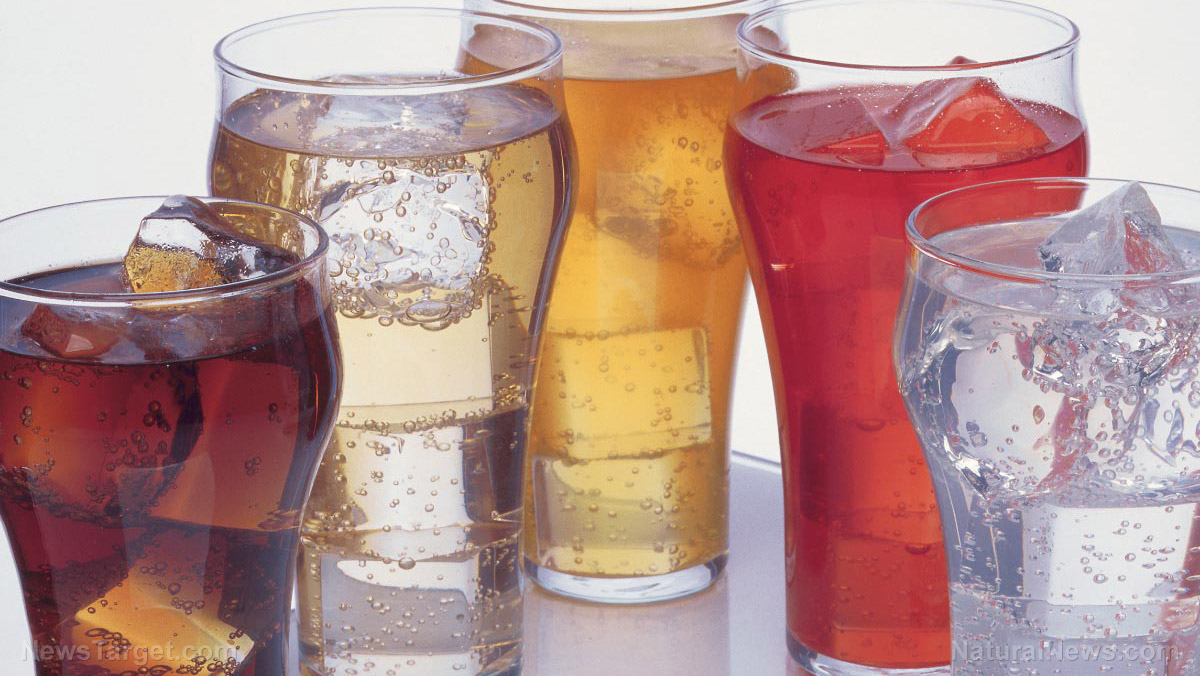Consuming fizzy drinks can affect bone health – but some drinks are worse than others
04/17/2020 / By Zoey Sky

Despite sodas containing too much sugar and warnings by numerous studies that they can cause health problems, carbonated beverages remain popular among consumers. But here’s another bad thing researchers have linked to the consumption of fizzy drinks: an increased risk of osteoporosis.
Soda ingredients and how they affect your bone health
Sugary sodas contain harmful ingredients like artificial colors, high-fructose corn syrup and phosphoric acid, all of which are bad for your overall health.
Phosphoric acid is a colorless, odorless crystalline liquid that gives soda a tangy flavor. It prevents the growth of molds and bacteria, both of which can quickly multiply in a sugary liquid.
Phosphoric acid comes from the mineral phosphorus, which is naturally found in the human body. Phosphorus works with calcium to strengthen the bones and teeth. However, research has found that excessive phosphorus intake can increase your risk of osteoporosis and heart disease.
Calcium and phosphorus levels in the body must remain balanced at all times. Too much phosphorus can decrease the amount of calcium, which may result in bone loss and hinder your body’s ability to use other minerals, such as iron, magnesium and zinc.
The Framingham Heart Study
Scientists have been monitoring thousands of residents in Framingham, Massachusetts since 1948 for a long-term research project called the Framingham Heart Study. The focus of the study is the residents’ lifestyle choices and their health consequences.
Because many of the original participants and researchers have already passed away, as of 1971 the project has tracked the health of the now-aging Offspring Cohort.

In the late 1990s, Framingham researchers gathered data from 1,125 men and 1,413 women aged 30 to 87. They analyzed the data to determine if there was a relationship between soda consumption and bone mineral density, which might hint at osteoporosis.
The researchers instructed the volunteers to monitor their daily consumption of different kinds of soft drinks. Meanwhile, the researchers paid closer attention to cola beverages or soft drinks like Coca-Cola, which are made with extracts from kola nuts. They classified Cola consumption based on the type of cola beverage: decaffeinated cola, diet cola and sugared cola. (Related: Deceptive and unhealthy: The 5 negative side effects of drinking diet soda.)
The researchers then looked at the participants’ soft drink consumption and the dual-energy X-ray absorptiometry (DXA) scans of their bone mineral content. They factored in variables like:
- Calcium intake
- Drinking
- Fruit and vegetable intake
- Physical activity
- Smoking
- Vitamin D intake
The researchers reported that Framingham residents drank a lot of soda. The men consumed six soft drinks a week and had a preference for diet soda. Meanwhile, the women consumed an average of five soft drinks a week.
At least 50 percent of the women drank diet drinks while the other half preferred sweetened beverages. The male volunteers preferred caffeinated colas.
The women also drank more caffeinated beverages than decaffeinated soft drinks, but they were more likely to choose the latter. While some of the participants didn’t consume soft drinks, others drank a shocking 10 Coca-Colas a day.
Data analysis revealed that:
- All of the soft drinks were linked to an increased risk of bone mineral loss.
- The sugar-sweetened cola soft drinks were more likely to be associated with reduced bone mineral density than all other beverages. Bone scans showed the most bone mineral loss in a part of the hip bone called Ward’s area.
- Caffeinated soft drinks caused more bone loss, particularly in the hip, than decaf soft drinks. Caffeinated cola soft drinks also caused more adverse effects than other caffeinated soft drinks.
- Diet colas caused half as much bone loss as sugar-sweetened colas.
These findings suggest that caffeine, cola extracts and sugar in fizzy drinks are the main causes of health problems. The researchers also found that other dietary choices, even healthy ones, did not cancel out the negative effects of soft drinks on bone health. The impact of long-term consumption of soft drinks was worse in women older than 60.
Healthy soda alternatives
To keep your bones healthy and strong, quit drinking sodas and other sugary beverages. Follow the tips below if you want to cut sodas out of your diet.
- Opt for a stable-energy booster like almonds whenever you find yourself craving a soda. Almonds won’t cause a sugar high that’ll eventually end up in a sugar crash.
- Replace soda with other caffeinated beverages, like coffee or tea. Make sure you use little to no sugar.
- Soft drink cravings may be caused by a low-grade yeast infection. Reduce your intake of sugary foods and drinks and drink more water and herbal teas.
Rather than drinking sodas and hoping that a healthier diet can keep your bones strong, it’s better to give up sugary sodas altogether.
Sources include:
Submit a correction >>
Tagged Under:
artificial sweeteners, bone diseases, bone health, caffeinated cola drinks, carbonated beverages, diet soda, fizzy drinks, ingredients, kola nuts, osteoporosis, phosphoric acid, prevention, research, soda, soft drinks, Sugars, toxic food, toxic ingredients
This article may contain statements that reflect the opinion of the author



















